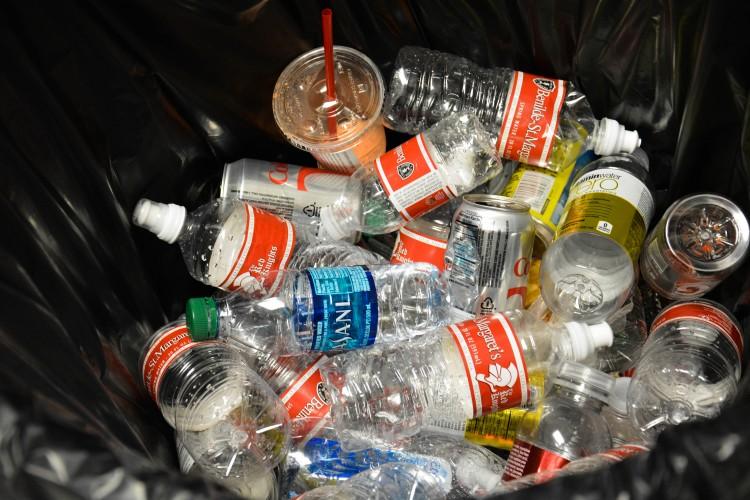Recycling bill proposed in Minnesota legislature
The program’s goal is to increase Minnesota’s recycling rate from 45% to 85%.
The Minnesota Bottle Bill has sparked controversy among citizens and environmentalists all over the state. The proposed bill would implement a new recycling system in Minnesota. A ten cent deposit would be added to the cost of every beverage container purchased; the deposit would be refunded when the can or bottle is recycled at a designated recycling center.
Recycling centers would be run by retailers, local government, non profits, or waste companies. Refunds would be given by either a store worker or reverse vending machines. The goal of the program is to increase Minnesota’s recycling rate from 45% to 85%. Opposition has formed against the inconvenience and additional taxes the bill creates.
The proposed bill has great advantages that would drastically improve Minnesota’s environmental program. The greatest benefit from the bill is the increase in the percentage of bottles recycled. The monetary incentive to recycle would make citizens much more likely to recycle. The analysis from the Minnesota Pollution Control Agency (MPCA) predicted an increase of 1.9 billion containers every year, substantially reducing the 142,000 pounds of recyclables thrown away every year. “The goal of the program is to increase Minnesota’s recycling rate to over 80%” said Wayne Gjerde, pollution expert at MPCA.
The bill would seriously increase the value of materials collected in Minnesota. Litter would become much less common if the materials carried a monetary value. A large economic benefit of the bill would be the creation of over 1,000 jobs. “These aren’t minimum wage jobs either, they’re jobs that will pay 10-15 dollars an hour,” said Gjerde.
If the Bottle Bill functions as planned, the benefits would easily prevail over the added costs. “The more we recycle, the less trash there is on the streets. The Bottle Bill is a good system in theory but the question is will it work?” said Mr. Mark Lex, leader of the BSM Environmental Club.
While the Bottle Bill would drastically reduce trash and litter, as well as increase the recycling rates, it creates a number of disadvantages for citizens. One of the most prominent problems with the bill is that creates 29 million dollars in new taxes for Minnesotans. The plan requires over 1100 new redemption sites throughout the state for bottles and cans to be collected. Because of the additional transportation and processing costs, the cost per ton of recycled materials would be 3 times higher than current curbside systems.
The biggest problem with the bill is that it causes inconvenience for those who already recycle. “People who already recycle will become frustrated. People are lazy and won’t think the 10 cent incentive is worth the hassle and just throw their cans away,” said Mr. Lex.
Another issue with the proposed bill is it vulnerability to fraud. The bill would create an increase of trash left by people looking to profit off of others recycling. Fraud would also occur by people who bring recyclables into Minnesota from other states to profit.
The benefits are wanted by all, but the inconvenience and costs may outweigh the return in the long run. As trash continues to pile up in Minnesota, the Bottle Bill debate will continue until a solution is found.




































![Teacher Lore: Mr. Hillman [Podcast]](https://bsmknighterrant.org/wp-content/uploads/2025/03/teacherlorelogo-1200x685.png)





